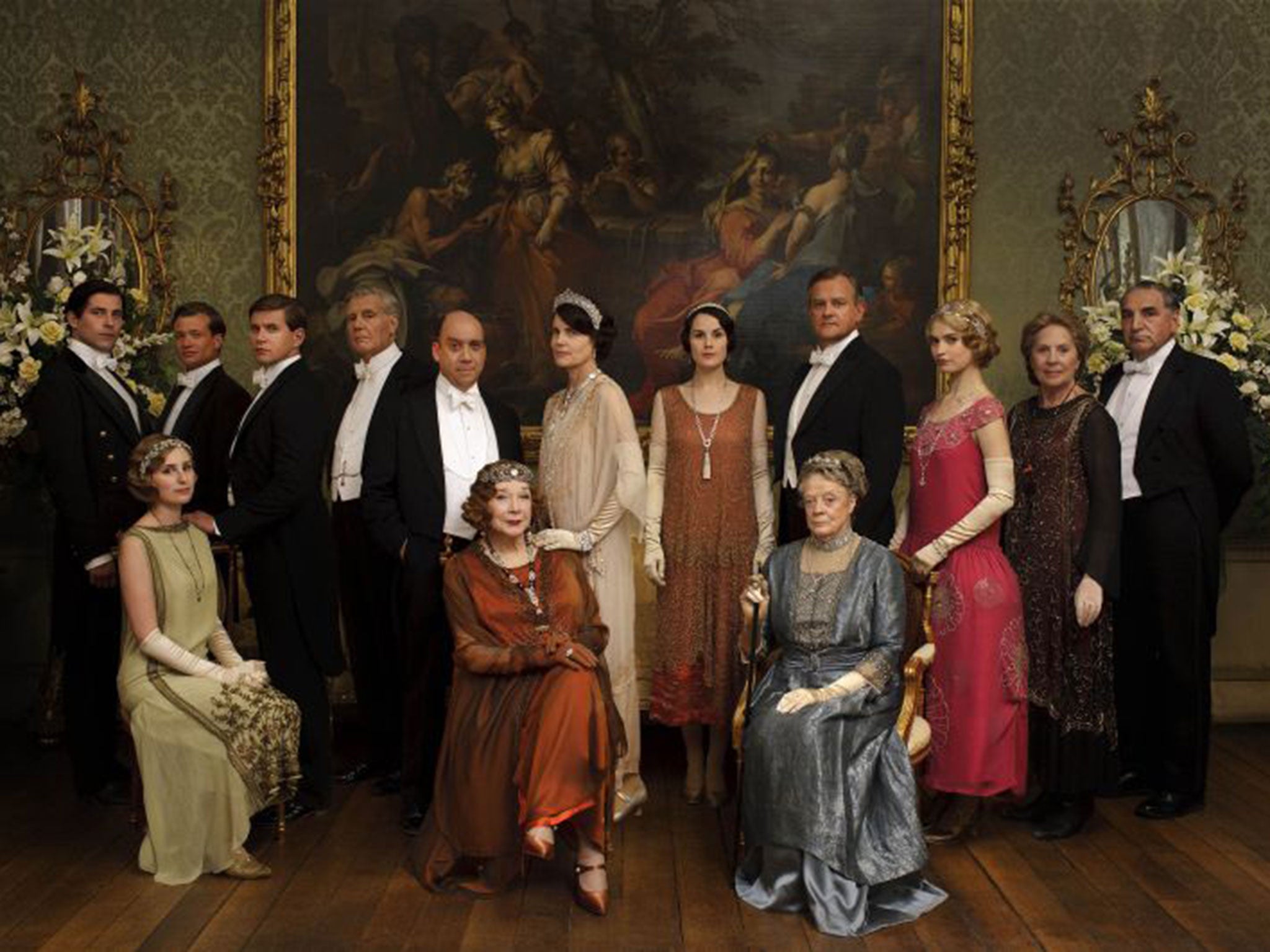Why do we assume that all working-class people crave social mobility?
There’s more to life than sashimi, Skype conferencing and holidays in Tuscany


Your support helps us to tell the story
From reproductive rights to climate change to Big Tech, The Independent is on the ground when the story is developing. Whether it's investigating the financials of Elon Musk's pro-Trump PAC or producing our latest documentary, 'The A Word', which shines a light on the American women fighting for reproductive rights, we know how important it is to parse out the facts from the messaging.
At such a critical moment in US history, we need reporters on the ground. Your donation allows us to keep sending journalists to speak to both sides of the story.
The Independent is trusted by Americans across the entire political spectrum. And unlike many other quality news outlets, we choose not to lock Americans out of our reporting and analysis with paywalls. We believe quality journalism should be available to everyone, paid for by those who can afford it.
Your support makes all the difference.“Social mobility has hit reverse,” Frances O’ Grady, the TUC General secretary, told the TUC conference yesterday. We are heading, she said, towards a “Downton Abbey-style society”. Her blame for this landed squarely at the feet of those pesky, priviliged and pampered Conservatives. There was further talk of “silver spoons” in mouths and “class prejudice becoming acceptable once again”. In absolutely fairness, I don’t remember prejudice against people with upper-class accents ever being remotely unacceptable.
I thank the heavens at least a dozen times a week that my own accent is distinctly “earthy”, hinting of poorness, pit-work and perhaps owning a childhood kestrel as it softens strangers wherever I go. No such luck for posho. Joy is unconfined every time one of them is vigrously nibbled during gap year by a orang-utan. Additionally, the Downton Abbey warning is slightly misplaced as that’s a television show about the British working classes proudly and stoicly running a large house with all its requisite cleaning, fetching, carrying, prepping, smoothing and shining.
Currently, the ever-burgeoning British hospitality industry is held together by diligent Europeans and Africans cleaning, cooking and fixing our drinks. Britain has reached a stage where there is seemingly “a lack of employment” but where “working in service” to the standard required is either beyond us or beneath us. I shall not worry about us becoming a nation of Mrs. Patmores and Mr. Carsons just yet.
Nevertheless, Ms O’Grady’s spirited scatter-gun attack on social mobility made my ears prick up. Largely as the topic of bettering oneself and fleeing one’s social status is such a muddy, precarious one that I love it when anyone rolls up their sleeves and rants. John Prescott’s two part-documentary for BBC2 The Class System and Me, for example, is a fantastic visual smorgasbord in which Prescott points out to a lot of priviliged sorts in Westminster, Hay-on-Wye, Henley etc, often for the first time, that their life paths, peppered with impressive lineage, inheritance, stellar connections and miscelaneous niceties is not, after all, what everyone experiences.
It’s imperative, I feel, that we all keep remembering that a certain section of society end up, in a sense, “born to rule”, particularly when, as Ms O’Grady reminded us, top executives now earn an average of 175 times more than the workers helping amass the money for them.
But the tricky thing about social mobility - I’ve found over the years - is the rash and rather patronising assumption that all working-class people want it, and in fact are living a life half-lived by never experiencing sashimi, BBC4, Skype conferencing, holidays in Tuscany and the peril of a missing pre-Christmas Ocado order. Because while some do, some absolutely don’t.
Oh how I wanted social mobility, craved it, drooled over it, standing from an early age with my metaphorical class hurdle under one arm waiting to run and jump into a better, upwardly mobile world. How bloody irritating it was to get here and realise the poor souls I’d “left behind” thought I was bloody welcome to my world of increased professional stress, needless airs and graces, pretentious cohorts and ever-moving life goals. “Come, family, friends, enjoy my socially elevated world,” I’d implore them. “Let me take you to my members’ club where they handwrap all the lemon segments in fine muslin and the bespoke burger costs 15 quid!”
It’s infurating to find, after all one’s class-escape endeavour, that the socially “stuck” people are usually happier than myself, living five miles from their parents, enjoying limitless free babysitting, never having to feign interest in a five-hour Stephen Poliakoff drama or suffer anyone at the school gate called Persephone droning on about her wheat intolerance.
The vital thing, I believe, for millions of working-class people isn’t this aim of “bettering” oneself - they’re fine as they are, thank you – but instead a real everyday need for a healthier wage packet, for increased working-class disposable income, simply so that paying bills, running a car, precious holidays, and household repairs are less smothering. It’s hard to prioritise “mobility” when you’re one wage packet away from losing the car that gets everyone to school, work and the out-of-town supermarkets that the working classes have been made dependent on. Money doesn’t buy you happiness, but when you’ve got it, you can have a damn good go.
Join our commenting forum
Join thought-provoking conversations, follow other Independent readers and see their replies
Comments